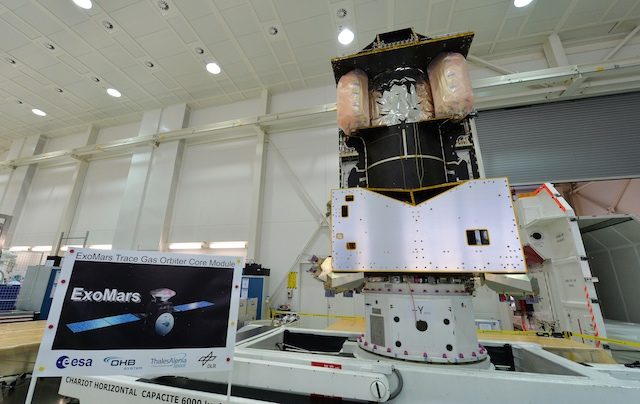SUMMARY
This is AI generated summarization, which may have errors. For context, always refer to the full article.

PARIS, France – The second part of a joint European-Russian mission to probe Mars for traces of life has been delayed two years, with a new launch date set for July 2020, officials said Monday, May 2.
In the first phase, the European Space Agency (ESA) and its Russian counterpart, Roscosmos, hoisted in mid-March two probes bound for the Red Planet.
The Tracer Gas Orbiter (TGO) will examine Mars’ atmosphere, and a lander – dubbed Schiaparelli, after a 19th-century astronomer – will settle on the planet’s surface in a trial run.
The planned second stage of the mission will dispatch a European rover capable of drilling up to two meters (about seven feet) into the Martian surface in search of organic matter.
Space agency officials had warned that the follow-on ExoMars mission, originally scheduled for launch in 2018, might be delayed due to technical problems and cost overruns.
“Taking into account the delays in European and Russian industrial activities and deliveries of the scientific payload, a launch in 2020 would be the best solution,” both agencies said in a joint statement.
With its suite of high-tech instruments, the TGO aims to arrive at its destination on October 19 after a journey of 496 million kilometers (308 million miles).
Launched on a Russian Proton rocket, the craft is designed to “smell” Mars’ atmosphere for gassy evidence of life, past or present.
Schiaparelli will test heat shields and parachutes in preparation for a subsequent rover landing, a feat the ESA said “remains a significant challenge”.
The 2020 payload will also be lifted into space by a Russian rocket.
The double ExoMars mission will complement the work of NASA’s Curiosity rover, which has been criss-crossing Mars’ surface for more than three years.
Space has been one of the few areas of cooperation between Moscow and the West that has not been damaged or derailed by ongoing geopolitical tension in Ukraine, Syria and elsewhere. – Rappler.com
Add a comment
How does this make you feel?
There are no comments yet. Add your comment to start the conversation.